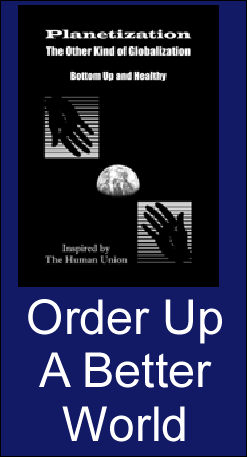An excerpt
In examining any crime, a central question must be "who benefits?" The principal beneficiaries of the destruction of the World Trade Center are in the United States: the Bush administration, the Pentagon, the CIA and FBI, the weapons industry, the oil industry. It is reasonable to ask whether those who have profited to such an extent from this tragedy contributed to bringing it about.
Those who believe it is inconceivable that the US government could carry out such an action would be well advised to learn from history. In nearly every war since the United States first emerged as a world power a century ago, the ruling class has seized on events or atrocities of a similar kind to overcome the instinctive reluctance of the American people to become involved in overseas conflicts.
In some instances the casus belli was wholly fabricated, as in the 1964 Gulf of Tonkin incident which led to passage of a congressional resolution authorizing massive US intervention in Vietnam. Or the pretext may have been an accident--the explosion that destroyed the battleship Maine in Havana harbor in 1898, which set the stage for the Spanish-American War. But in the majority of cases the event chosen to trigger war was subject to a degree of manipulation behind the scenes by the US government.
The sinking of the Lusitania in 1915 was the foreseeable result of the Wilson administration's decision to allow passenger liners to carry arms shipments for the British-French side in World War I. When a German submarine torpedoed the ship, with the loss of 1,200 lives, the resulting public outrage helped fuel US entry into the war. Pearl Harbor likewise was foreseen by the Roosevelt administration--if not the specific date and location, certainly the likelihood of a preemptive Japanese attack--once the US cut off all shipments of oil and scrap metal to Japan in the summer of 1941.
A cruder case of manipulation is the August 1990 Iraqi invasion of Kuwait, which became the occasion for the large-scale and seemingly permanent-deployment of American troops and warplanes in the Persian Gulf and Arabian peninsula.
Throughout the 1980s, Saddam Hussein was a de facto military ally of the United States, receiving US intelligence information and US-approved weapons shipments to aid his war against Iran. After Iran was compelled to accept a cease-fire in 1988 largely favorable to Iraq, the main US (and Saudi) concern was to prevent Baghdad, with its battle-tested million-man army, from dominating the Persian Gulf.
A series of conflicts ensued, largely provoked by Kuwait. The oil-rich emirate demanded immediate repayment of billions in war loans to Iraq, while at the same time draining oil from the Rumaila field, which lies largely on the Iraqi side of the border, thus putting Iraq in a severe financial squeeze. In retaliation, Saddam Hussein engaged in saber-rattling declarations, describing Kuwait as the lost nineteenth province of Iraq, stolen from the country by British imperialism.
The US response to this conflict was notably reserved. In her now-famous meeting with Saddam Hussein the month before the Iraqi invasion, US Ambassador April Glaspie declared that Iraq's dispute with Kuwait was a matter for those two to resolve for themselves, with no role for the United States. Meanwhile, on the orders of Colin Powell, then chairman of the Joint Chiefs of Staff, General Norman Schwarzkopf drew up plans for a massive US military intervention in the Persian Gulf aimed against Iraq. War-gaming of this plan was completed in July 1990, within days of the Glaspie-Hussein meeting.
There is ample reason to believe that the US tacitly encouraged an Iraqi attack so as to provide a pretext for smashing the Iraqi military and realizing a long-desired goal of US foreign policy, the establishment of a dominant American military position in the oil-rich Persian Gulf. In the same way, the Bush administration has used the World Trade Center catastrophe as the opportunity for deploying American military forces in Central Asia and the Caspian basin, a region of vast untapped oil reserves which is expected to become the Persian Gulf of the twenty-first century.
US officials were quoted after the Iraqi invasion of Kuwait to the effect that they had not thought that Saddam Hussein would seize the whole country. In other words, they encouraged his appetites, expecting only a border conflict which would bring the US in as an arbiter and thus strengthen its role in the Gulf region. A similar miscalculation may have been involved in the September 11 hijackings, whose consequences were far more devastating than might have been expected.
It is not possible to determine, based on the facts currently available, the exact degree of advance knowledge the American government possessed about the World Trade Center catastrophe. But the question deserves the most thorough investigation.
Alternative explanations--that the FBI and CIA were guilty of ineptitude so spectacular that it amounts to criminal negligence--do not place the US government in a much better light. The American people are being asked to give their blind trust for an unlimited and open-ended campaign of military action by a government which either permitted, or proved incapable of preventing, the slaughter of thousands of its own citizens.
The Setting Up of Crime for the Implementation of Foreign Policy
The Refusal To Investigate
By Patrick Martin,
24 January 2002
www.wsws.org/articles/2002/jan2002/sept-j24_prn.shtml
To next article for Declaring Independence and A State of Global Rebellion
Phase 1 “Know” Menu
Looking for Justice in All the Wrong Places Menu
Insights-Reflections-Analysis Menu
Covering Up the Cover Up Menu
The Reality of Israeli Zionist Infiltration Menu
Are We On the Path of Expanding Liberty or Tyranny?
Declaring Independence and A State of Global Rebellion Menu
A Picture of the Stars and A Voice from the Ethers Menu
Interim Addendums During Phase 1
